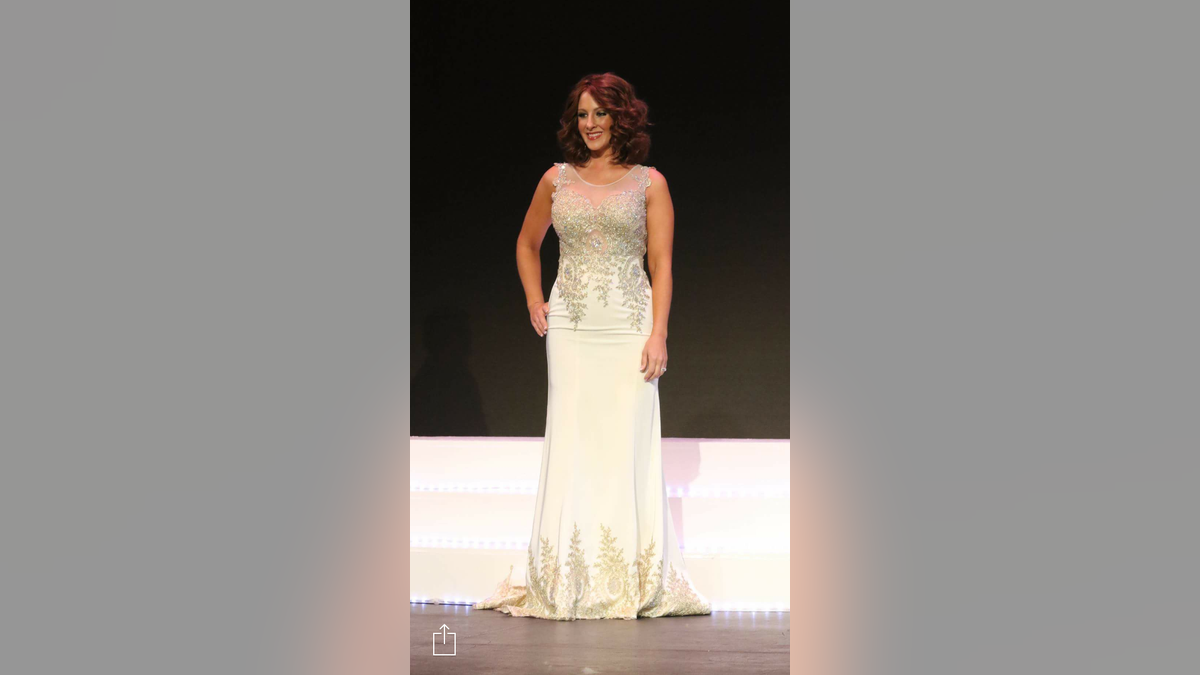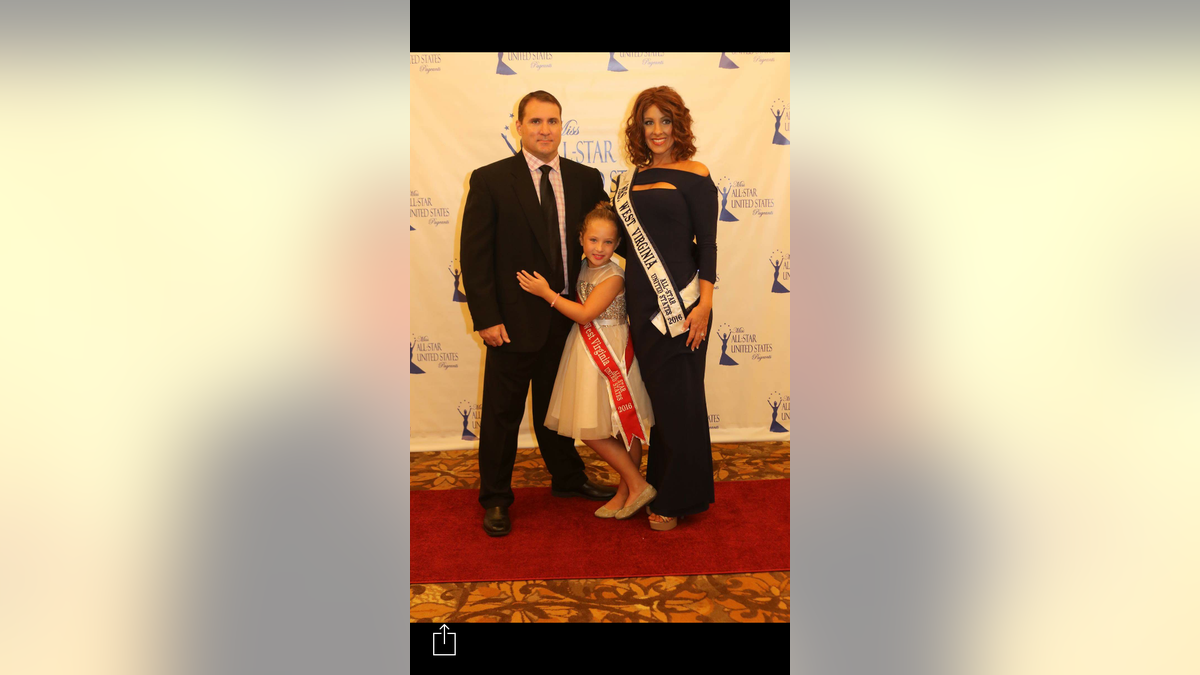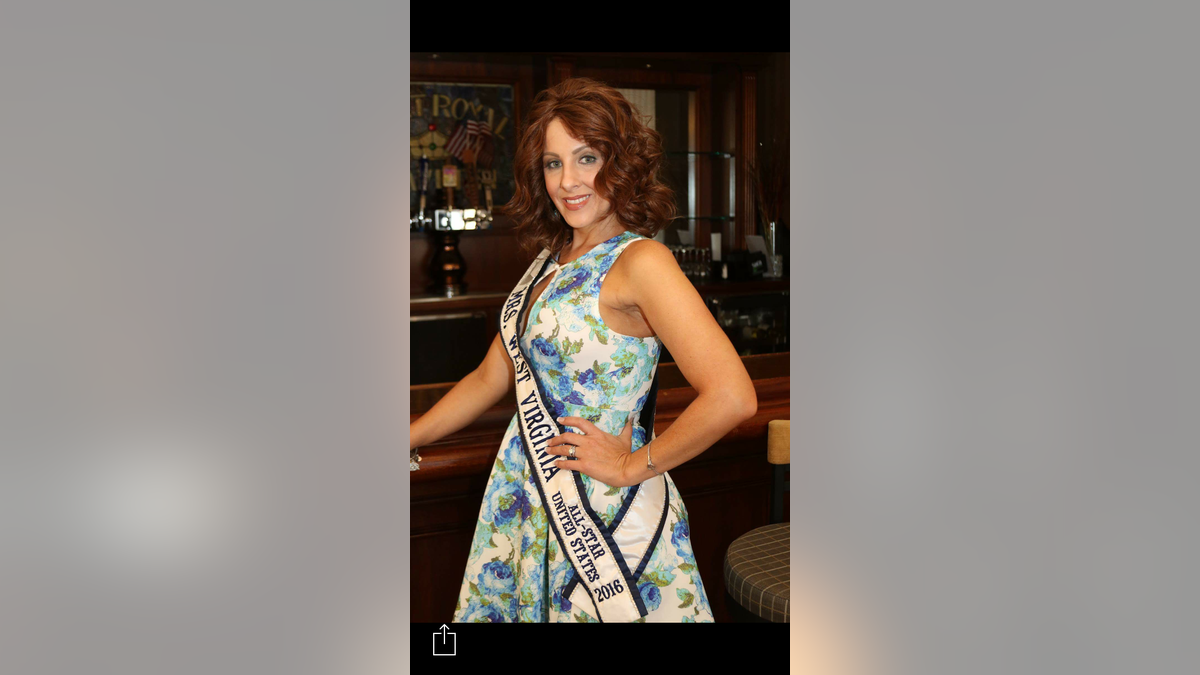Lots of women enjoy getting dolled up, but wearing red or nude lipstick and a stylish outfit offer more than amusement for 36-year-old Sarah White— looking her best gives her strength to continue fighting for her life.
After beating the disease in 2013, the special education teacher saw her triple negative breast cancer return and spread to her chest wall, spine and lungs in October 2015. The news was ill timed: White had been on her 10th year of teaching those students, and she had given birth to her second child only six months prior to her diagnosis. To prepare for more treatment and shield her fragile immune system, she went on medical leave and soon after fell into “a funk,” she said.
“When I found out it’s back at stage 4, I kind of did the bucket list thing, and my husband said, ‘I don’t want to hear this,’” White told FoxNews.com.

(Courtesy Sarah White)
But ultimately, taking that approach helped White rediscover one of her childhood passions— beauty pageants— and rediscover herself. The endeavor not only helped her cope emotionally, but it also has provided a vehicle to inspire and educate other women battling disease.
“I am a person”
After a friend encouraged White to participate in the Miss All-Star United States Pageant, a national beauty pageant for women of all ages, White won the title of Mrs. West Virginia in April, and in July she competed for the national title. White used her cancer battle as a platform to raise awareness of the disease, propose new breast cancer-related legislation in West Virginia, and educate the public about clinical trials like METRIC, a national ongoing study in which she participates at the Cleveland Clinic.
Although results have not been finalized, so far the IV treatment is showing promise for White, who makes the five-hour drive from her hometown of Huntington, West Virginia, to the Cleveland Clinic, once every three weeks. The study is randomized and controlled, and White received the study drug, not the placebo.
“We saw near-complete disappearance of her lesions in the bone and lung and chest wall. It’s really working for her now,” Dr. Jame Abraham, director of the breast oncology program at the Cleveland Clinic, and White’s doctor, told FoxNews.com. The trial began about a couple of years ago, and Abraham estimated it will end in one year.
Triple negative breast cancer, which affects about 15 percent of breast cancer patients, is known to be aggressive. White had already undergone a double mastectomy, radiation and chemotherapy the first time she fought the disease. Prior to seeking another opinion at the Cleveland Clinic about a year ago for her second battle, White said her doctor in Columbus told her that, if chemo stopped working, she had two to five years to live.
“She should have never put it in those words,” White said. “She put me as a statistic, and I am not a statistic. I am a person.”
Her husband, Nestor, filled out an online referral form for the Cleveland Clinic, where she was later tested for GPNMB , a protein present in about 20 percent of triple negative breast cancer tumors. White tested positive for the protein and enrolled in the study in December 2015.
The targeted treatment belongs to a new class of drugs that kill only diseased cells, not healthy cells as in chemo, and it has enabled White to travel for the Miss All Star United States Pageant albeit with some fatigue.

(Courtesy Sarah White)
Nestor, 42, was reluctant when his wife first suggested participating in pageants because he was concerned for her physical wellbeing, but he said White’s passion for inspiring others has always been reflected in all aspects of her life.
“She was a special education teacher, and she chose that specifically because she had had teachers as a kid that gave her negative feedback, so she wanted to make sure that when she dealt with [her students] she was giving them positive feedback and let them know that they were going to make their way in the world,” Nestor, who works in banking, told FoxNews.com.
“She amazes me every day with her outlook and her response,” he said.
Recently in Savannah for the pageant, White competed with 49 other contestants for the national title. Although she didn’t win, White said the opportunity helped teach her children, Raegan, 7, and Benjamin, 3, an important lesson about life.
“I’m trying to teach my kids that no matter what happens— good and bad things happen, there are winners and losers, people get cancer, other people don’t get cancer— it’s a part of life,” White said. “I’m hoping that by being the way I am that I’m teaching my children to be strong.”
“People will listen”
The pageant gave White a platform to promote proposed legislation in West Virginia for which she’s now recruiting delegates. The bills would improve standard of care for patients with aggressive breast cancer and aim to aid in earlier diagnoses, as well as provide better mammogram coverage for women who want them or women who are at-risk. Another bill would restrict access to tanning beds for minors, as excess sun exposure is proven to increase the risk of cancer.
White has already garnered some supporters, including the American Cancer Society and her support group, the Sisters of Hope.
“One of the reasons I did the pageant was obviously to have something to focus on, but another reason is if I was standing on the street without a sash and without a crown talking about self-checking and breast cancer awareness or whatever, I might get two people who might listen to me, maybe five,” she said. “But if I have a sash on … you get a following, and people will listen.”
Tammy Johns, national director of the Miss All-Star United States Pageant, described White as “fantastic.”
“She truly does not let her illness hold her back or stop her,” Johns told FoxNews.com in an email. “She graced the stage with poise and elegance. Sarah's attitude and endurance is wonderful— a true queen.”
White also participated in the pageant to show other women with breast cancer what’s possible.
“Just because I have cancer and it’s stage 4 doesn’t mean I’m wallowing in it,” she said. “I don’t have to lay down and die. I could walk into the Cleveland Clinic and wear my PJs, and I’d look like death and feel like death, or I could put on a wig and my jeans and my Michael Kors sandals and lipstick.”

(Courtesy Sarah White)
To continue inspiring patients like herself, she volunteers monthly for the American Cancer Society’s program “Look Good Feel Better,” where she teaches other women how to draw on their eyebrows, and put makeup on and tie their scarves.
“I show up with my wig and I take it off. When I show them that, the relief on their faces is unbelievable —it’s like, ‘Wow, you’re not just some ‘Joe Schmo’ who’s showing me how to do that … that makes me feel good.”
